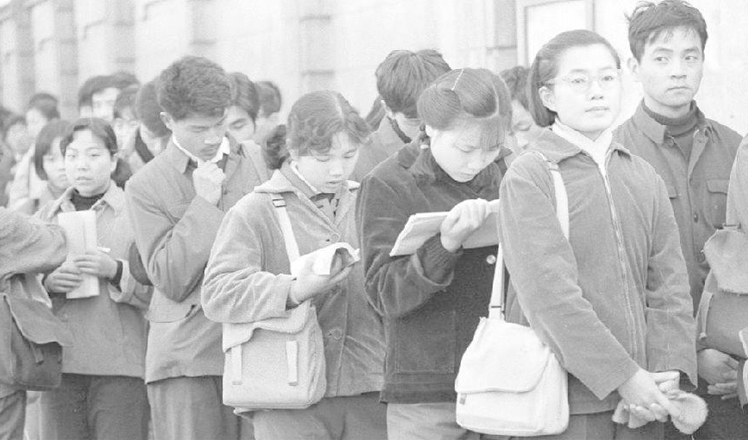That sky high dilemma
Updated: 2015-10-04 03:20
By Yu Ran and Wang Ying(China Daily USA)
|
|||||||||
The country's clarion call to women in the beginning was for them to "hold up half the sky" in China. More than 60 years later, both the country and its female citizens have undergone a sea change. Women now have to choose between family and career, and some have chosen to stay at home. Yu Ran and Wang Ying look at the challenges they face.
It is a hard choice Pan Qishan has to make: to have another child or to keep her stable job. When she first got married, she did not even consider the option of a second child, but now, a revised family planning policy has got her thinking very hard about giving her three-year-old son a younger sister.
"I am an only child so I grew up lonely, without a playmate. I don't want my child to feel the same way," said Pan, 30, a primary school teacher.
China's family planning policy was introduced in the late 1970s to rein in a surging population by limiting most urban couples to having one child.
The restriction has been slowly relaxed, first in 2011, when married couples, both of whom are the only child of their families, were allowed to have a second child.
In November 2013, the rule was further eased, and a couple is permitted a second child as long as one partner is from a single-child family.
The revised policy brings both pros and cons to mothers like Pan, who feels she would have to give up her job if she decides to have another baby.
"I will definitely have to quit my job and stay at home if I give birth to a second child. We cannot find anyone else to take care of two children during the day," Pan said.
More and more Chinese female professionals are giving up their ambitions at the workplace so they can better nurture a second generation. They just cannot keep up the juggling between work and family responsibilities.
The main motivation is to give their children better attention as a mother, and to make sure they have a well-balanced childhood.
At the end of 2010, Tencent and Wuhan-based newspaper Changjiang Daily surveyed over 20,000 women across China about family and work commitments.
About 40 percent of women polled said they wanted to be full-time housewives, while 38 percent are more committed to their jobs. The rest of the women polled are still making up their minds.
Contrast this with another survey by the Shanghai Women's Association conducted in 2005, where only 10 percent of 1,000 respondents were actively looking to leave their job without a back-up.
The change may be the result of more pressure at work and heavier responsibilities at home, and the difficulty of striking a workable balance between the two.
Being a full-time wife and mother is a sometimes thankless job.
The Chinese family exerts tremendous pressure on the mistress of the house, and she is expected to oversee myriad duties from basic housekeeping to the children's education to important family decisions to caring for the elderly at home.
"I am on crisis management mode almost all the time, handling unexpected tasks without any breaks, in between cleaning and cooking, taking care of my child and both of our parents if they are sick,” said Chen Mi, who gave up her job four years ago when her son was born.
Since then, Chen hasn't had a chance to have dinner with her friends as she has to cook for the family and be with her son until he falls asleep every day.
"I am working like a robot in the role of housekeeper, mother, wife and nurse at home. I get little chance to interact with other people. I feel abandoned by society," Chen said.
To add to the frustration, full-time housewives like Chen also suffer the stigma of being not as capable as those with a career outside the home.
For more than half a century, Chinese women have had important roles in the workforce and gradually, the term jiating funv (the woman at home) has developed negative connotations, suggesting that those who do stay at home are less able.
"Some of my friends got divorced because their husbands had affairs after they turned housewives. People rarely understand how hard it is to be a full-time wife and mother," said Hu Xiaocong, who opted to stay at home three years ago.
She said that many Chinese are more or less prejudiced against housewives, seeing them as out-dated and with no place in modern society.
In contrast, being a full-time wife and mother seems much easier for the Chinese abroad.
"I've enjoyed being a housewife here by making friends with most of my neighbors, who are also passionate and energetic housewives. It makes me a part of the community very quickly," said Wang Lilan, a 37-year-old mother of two girls. She is a former professor who currently lives in Sydney, Australia.
Unlike housewives in China, Wang hires a nanny to take care of her younger daughter. She also has a helper to do housecleaning, and she sends her elder daughter to a local primary school so she has more time for herself.
"I prioritize my happiness, so I take part in activities in the community including cooking classes, sewing lessons and health lectures to add color to my life," Wang said.
It is a trend that is also happening in China, with younger wives and mothers taking the lead.
In order to remain active in society, some young housewives are joining leisure activities to make new friends and preparing for the time they can get back to working.
"I'm tired of staying at home dealing with housework and I will go back to work sooner or later as I don't want to end up being a so-called useless housewife," said Huang Qian, a 31-year-old who is planning to find a job after her son starts kindergarten in the coming fall.
When she has the time, Huang goes to the gym every two days and learns to paint every weekend while hoping to meet people with the same interests.
"We realize we cannot be trapped in a small apartment with housework and children permanently, so we are trying to balance our own interests, social life and a happy family," Huang said.
Contact the writers at yuran@chinadaily.com.cn, wang_ying@chinadaily.com.cn
- Russian warplanes hit IS targets in Syria
- Senior US envoy to visit Japan, S Korea, China
- Russia, US agree to cooperate in solving Syria crisis: Russian FM
- Iranian President calls Iran deal victory over war
- LatAm experts praise Xi on yuan, globalization
- Evidence found of summertime water flows on Mars: study

 Candlelight vigil for Oregon shooting victims
Candlelight vigil for Oregon shooting victims
 Chinese people's pursuits in different eras
Chinese people's pursuits in different eras
 Ten highlights from Xi's trip to US and UN
Ten highlights from Xi's trip to US and UN
 Top 10 life-changing benefits from Xi's US visit
Top 10 life-changing benefits from Xi's US visit-
 Highlights of President Xi's speeches at UN
Highlights of President Xi's speeches at UN -
 The president's historic journey to the west
The president's historic journey to the west -
 China's first lady visits Juilliard School
China's first lady visits Juilliard School 
 Across Canada
Across Canada
Most Viewed
Editor's Picks

|

|

|

|

|

|
Today's Top News
Xi pledges $2 billion to help developing countries
Young people from US look forward to Xi's state visit: Survey
US to accept more refugees than planned
Li calls on State-owned firms to tap more global markets
Apple's iOS App Store suffers first major attack
Japan enacts new security laws to overturn postwar pacifism
Court catalogs schools' violent crimes
'Beauty of Beijing's alleys akin to a wise, old person'
US Weekly

|

|








